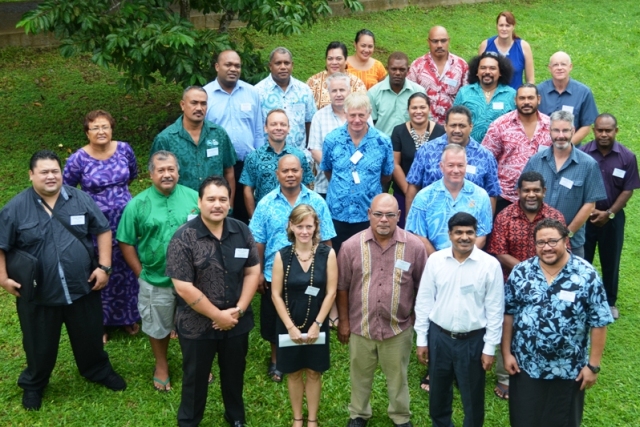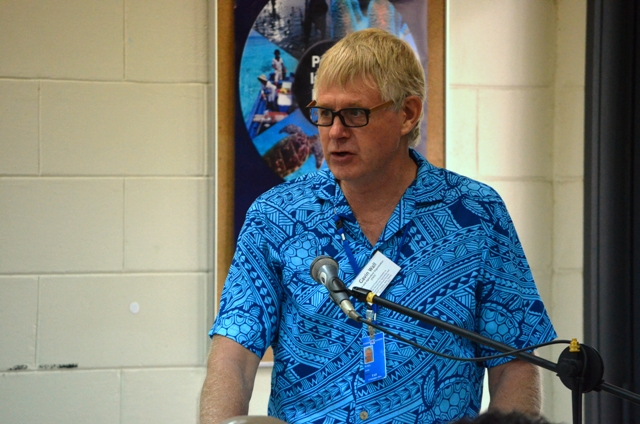
Climate Change Resilience

The Regional Expert Roundtable on Climate Services for Agriculture and Food and Nutrition Security opened in Samoa today. It brings together a range of experts from the agricultural, climate change and weather sectors to provide guidance on how climate services can effectively contribute to food and nutrition security.
From 1982 to 2012, there were 615 natural disasters recorded in the Pacific, three quarters of which were weather related, according to a study conducted by the Secretariat of the Pacific Community. Findings from the 5th Assessment Report of the Intergovernmental Panel on Climate Change tell us that our climate will continue to change in the future.
With these in mind, the Roundtable will help strengthen relations between the climate change, meteorology and agricultural experts is an important milestone.
"A vibrant agriculture sector in the Pacific islands is not only beneficial economically and socially, it also has a broad reach into the homes of Pacific island residents," stated Mr. Gavin Wall, the Sub-regional Coordinator of the Food and Agriculture Organization.
 Mr Gavin Wall, Sub-regional Coordinator of the UN Food and Agriculture Organization, Pacific office
Mr Gavin Wall, Sub-regional Coordinator of the UN Food and Agriculture Organization, Pacific office"It is critically important therefore that farmers continue to produce much needed food, and to do so reliably we need to be resilient to the climate impacts."
SPREP worked with the World Meteorological Organization and other partners to develop a draft Pacific Region Implementation Road Map for Strengthened Climate Services in 2014. The Roadmap was taken further with the establishment of the Pacific Islands Climate Services Panel, which developed an action plan for climate services in the region – all of which is aimed at improving the climate services provided for different sectors.
"I am sure the deliberations over these two days will bring a fresh perspective to the meteorological community on how climate services can be tailored to provide specific information for decision making, including that at the policy level," said Mr. Kosi Latu, the Deputy-Director General of the Secretariat of the Pacific Regional Environment Programme (SPREP).
 Mr. Kosi Latu, Deputy Director General of SPREP
Mr. Kosi Latu, Deputy Director General of SPREP"The agricultural sector is a key partner for which the meteorological community provides climate services to help them prepare for what weather impacts may come."
Agriculture and food and nutrition security are impacted by climate variation and having access to accurate climate information and meteorological data can help the agriculture sector better plan to improve production of crops and livestock. The participation of agricultural specialists of the Secretariat of the Pacific Community (SPC) contributed to the richness of the issues being discussed at the roundtable.
The team, led by soils specialist, Dr Siosiua Halavatau of the Land Resources Division, discussed from the users of climate information services angle, access to accurate data collected on variability of rainfall, temperature fluctuations and sunshine hours. The aim is to help improve collaborative research to better provide technical assistance to national stakeholders.
"Partnership lies at the heart of this Roundtable and in the region's ability to address this important challenge," said Mr. Dean Solofa of SPC.
Alan Porteous of NIWA added that "the partnership between FAO, NIWA, SPC and SPREP was central to the design of the Roundtable which seeks to have a frank exchange of ideas and experiences to honestly identify the needs, gaps, capacities and way forward."
The two day Roundtable is held at the SPREP compound and is furnished by a partnership between National Institute of Water Atmospheric Research (NIWA), the Secretariat of the Pacific Community, SPREP, Government of Samoa and the Food and Agriculture Organization of the United Nations (FAO).